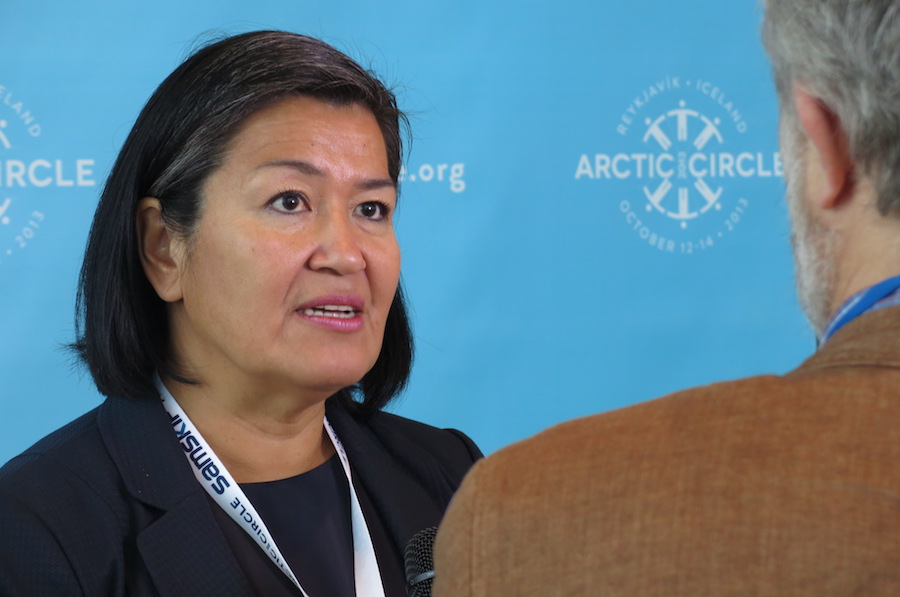Controversial former premier is set to return to Greenland’s national assembly
Infamous for taking jabs at Denmark and being accused of misusing public money, Aleqa Hammond is likely to once again be amongst the 31 members of Inatsisartut.

One of Greenland’s most controversial political figures is set to return to the national legislature after that country’s new four-party government on Friday announced the members of its cabinet.
Aleqa Hammond, who stepped down as premier in 2014 amid accusations that she misused public funds, failed to win a seat in the April 24 election to Inatsisartut. However, as the party’s second-biggest vote getter she is likely to assume the seat won for the newly formed Nunatta Qitornai party by Vittus Qujaukitsoq.
Cabinet members typically request leaves of absence from Inatsisartut in order to be able to attend to their duties as members of the government. If they are granted leave, their alternates are found from amongst their parties’ biggest vote-getters.
Hammond earned 171 votes in the election, well off the record 6,818 she received in the 2013 general election, but second highest amongst the alternatives nominated to fill in for cabinet members. The lowest was 71.
[In cliffhanger election, Greenland’s incumbents cling to power]
Hammond, 52, is an outspoken proponent of quick secession from the Kingdom of Denmark and once stated she hoped to see independence in her lifetime.
Being allowed to serve in Inatsisartut would see Hammond return to a legislature that remains under the control of Kim Kielsen, who succeeded her as chair of the Siumut party in 2014.
A year after stepping down as premier, Hammond brushed aside the spending scandal to secure one of Greenland’s two seats in the Danish national assembly. She still holds the position, but was excluded from Siumut shortly after, when it emerged she had used an official credit card for personal expenses.
Qujaukitsoq himself left Siumut under a cloud of controversy after being stripped of his foreign-affairs portfolio. He later failed in an effort in July to wrest leadership of Siumut from Kielsen. He then went on to establish the separatist Nunatta Qitornai.
Qujaukitsoq also favours quick independence and has often taken Denmark to task over its treatment of Greenland. While in the cabinet, he agitated for Denmark to assume responsibility for toxic waste left behind at abandoned U.S. military installations, at one point requesting the UN investigate whether Copenhagen was violating international conventions protecting the rights of indigenous groups by not acting.
[Nuuk withdraws a human-rights complaint to the UN]
He will hold a range of portfolios, including development of the natural resources industry and “independence and constitutional issues.”
Despite the falling out with his former foreign minister, Kielsen was forced to include Qujaukitsoq and Nunatta Qitornai in his government in order to secure a majority.
Greenland’s new cabinet members and their areas of responsibility, by party affiliation
Siumut
Kim Kielsen: premier, also responsible for environmental issues
Simon Simonsen: (vice-premier) housing, infrastructure
Erik Jensen: fishery, hunting, agriculture
Vivian Motzfeldt: education, culture, church and foreign affairs
Doris Jensen: health and research
Partii Naleraq
Pelle Broberg: finance and taxation
Anthon Fredierksen: social and family affairs, justice
Atassut
Aqqalu Jerimiassen: commerce and energy
Nunatta Qitornai
Vittus Qujaukitsoq: natural resources, labor and independence and constitutional issues